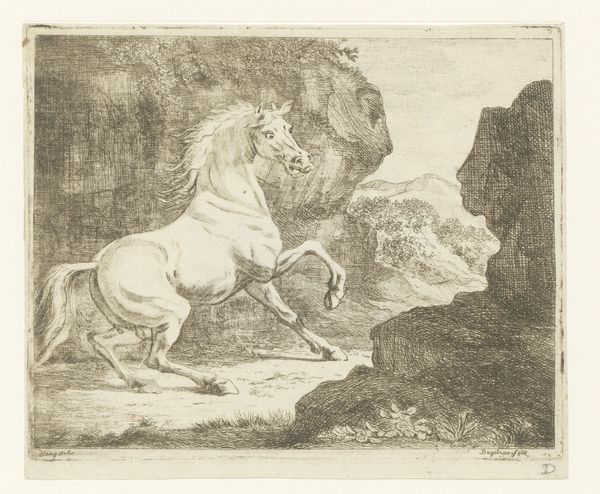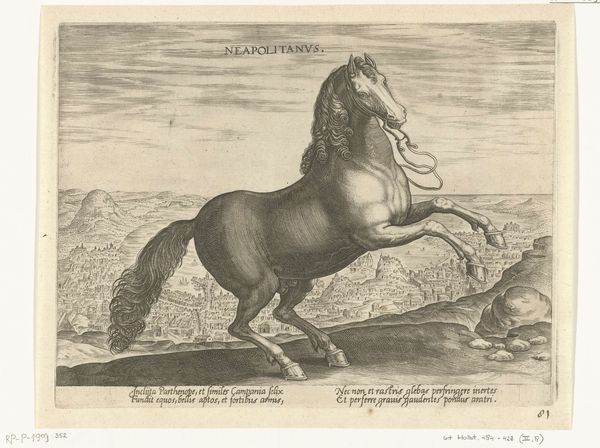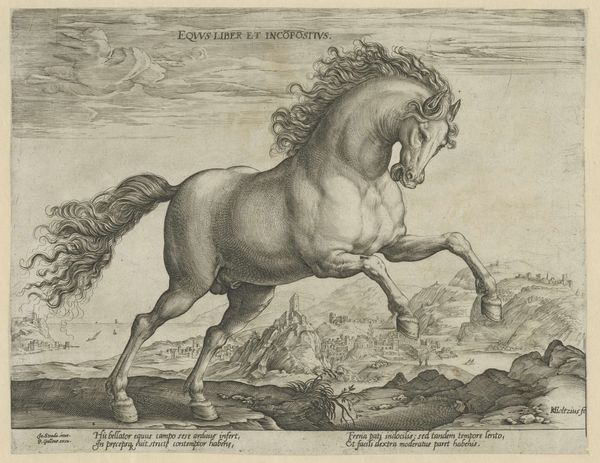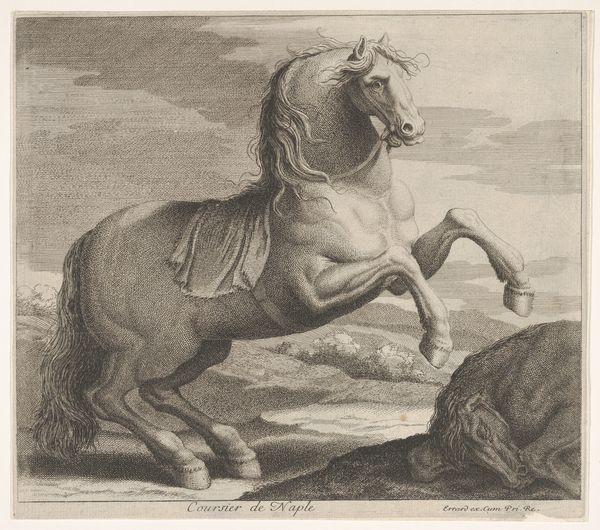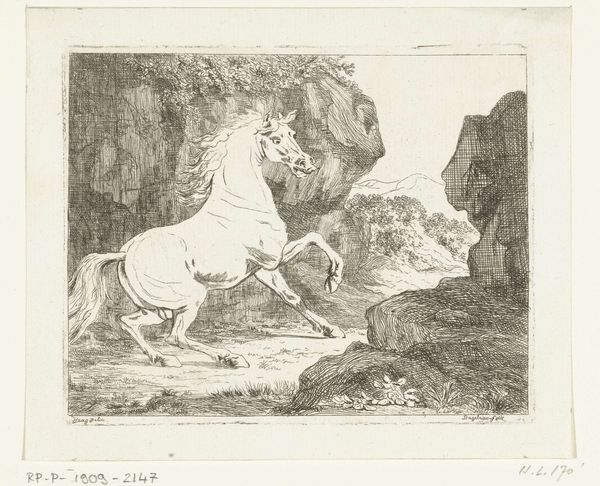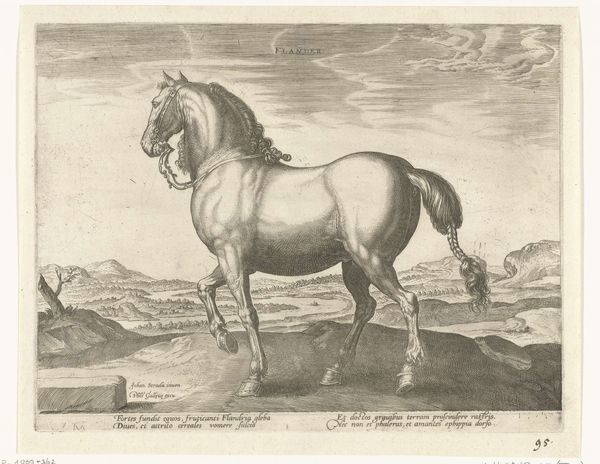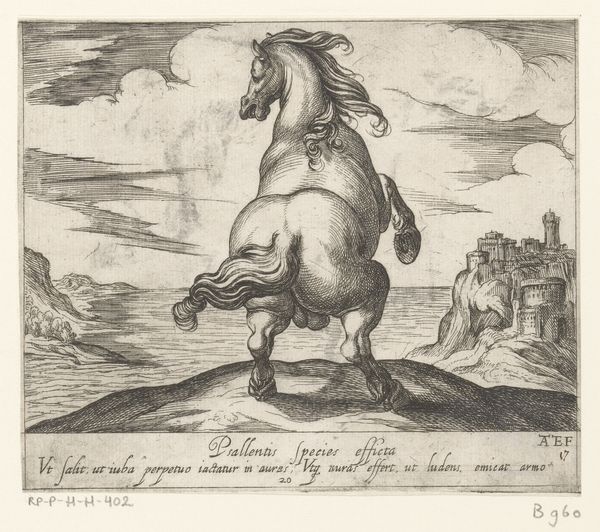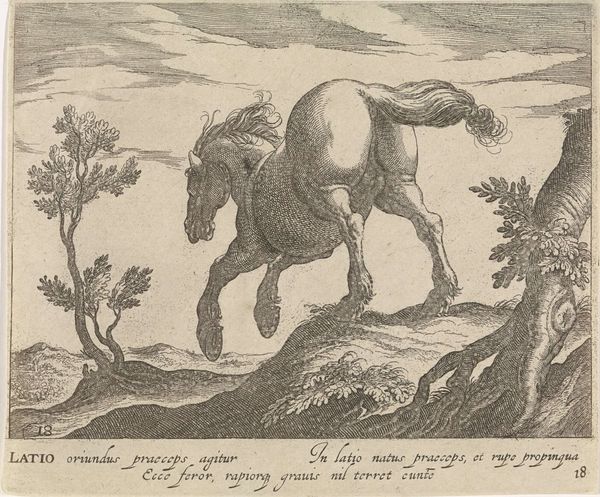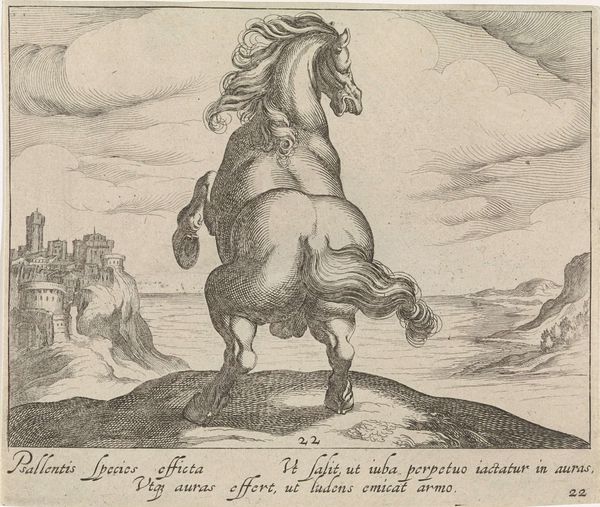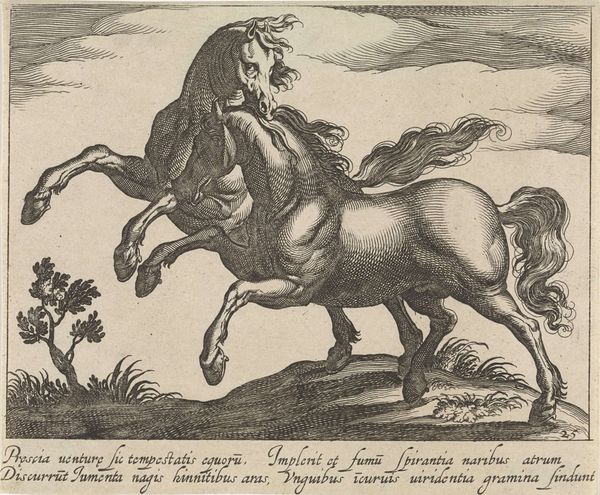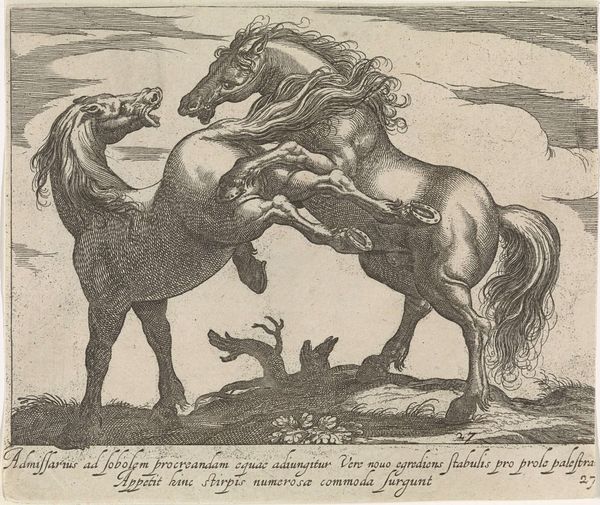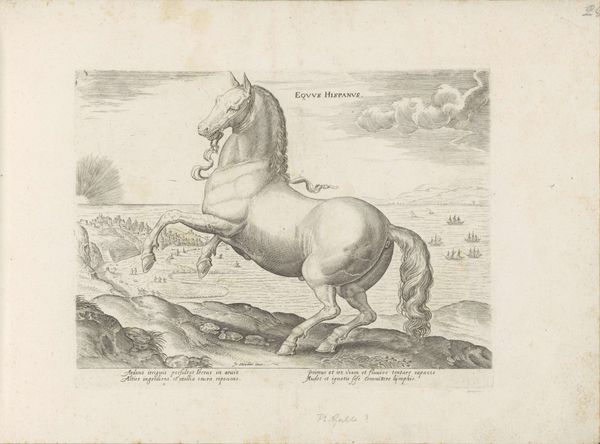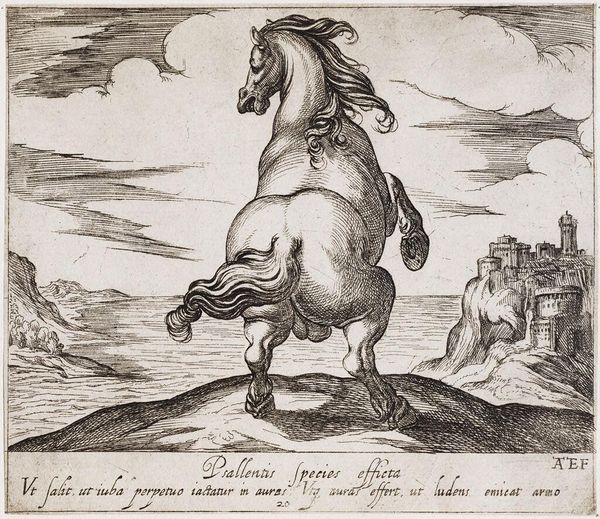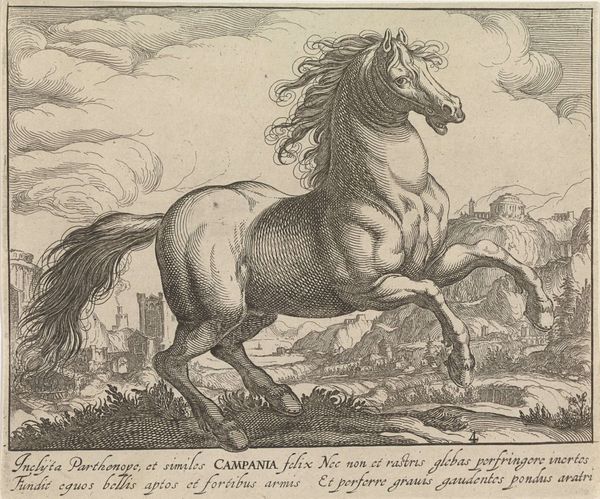
print, etching, engraving
# print
#
etching
#
old engraving style
#
landscape
#
figuration
#
romanticism
#
engraving
Dimensions: height 115 mm, width 142 mm
Copyright: Rijks Museum: Open Domain
Editor: So this engraving, "Stuiterende witte hengst" – “Bouncing White Stallion” – by Ernst Willem Jan Bagelaar, probably created sometime between 1798 and 1837… it’s just so dramatic! The horse rearing up like that, with this looming landscape. What strikes me is how it merges power and vulnerability. How do you interpret this work? Curator: This image pulsates with layered meanings. Consider the horse itself - throughout centuries and across cultures, the white horse symbolizes purity, nobility, even triumph. Think of mythological steeds or royal portraits. Editor: So, this isn't just *any* horse. Curator: Precisely. But here, trapped between imposing rocks in the Romantic style – are we seeing a challenge to that symbolism? Is this freedom curtailed, potential energy stifled? What does the natural world *do* to received wisdom? Editor: It’s as if the landscape is a mirror, reflecting an internal struggle. The horse isn’t simply powerful; it's also confronted. Curator: The artist cleverly positions the animal – neither fully wild, nor completely domestic. Note the control implied by the trimmed tail and mane. Doesn't it prompt questions about the boundaries between civilization and nature, control and freedom? Editor: It definitely adds another layer to it! I came in thinking 'powerful animal,' but now I'm considering what that power *means* in relation to everything surrounding it. It feels like it carries so much cultural memory. Curator: Visual symbols possess this uncanny ability to distill complex cultural narratives, prompting us to excavate historical, psychological, and even personal resonances. Editor: That's amazing! I’m looking at it totally differently now.
Comments
No comments
Be the first to comment and join the conversation on the ultimate creative platform.
